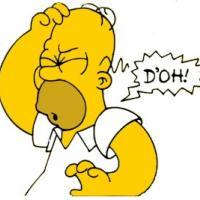
The pain of losing...
In one of my previous blog posts I wondered whether the pain of losing a chess game is greater than the joy of winning (or vice versa).
It seems that scientific research has provided an answer. Apparently humans are naturally risk averse and in order take a risk need the potential gain to be twice as big as the potential loss.
Simple experiments back up this loss aversion. For example (from the article), would you rather be A or B:
A is waiting in line at a movie theater. When he gets to the ticket window, he is told that as he is the 100,000th customer of the theater, he has just won $100.
B is waiting in line at a different theater. The man in front of him wins $1,000 for being the 1-millionth customer of the theater. Mr. B wins $150.
Amazingly, most people said that they would prefer to be A. In other words, they would rather forgo $50 in order to alleviate the feeling of regret that comes with not winning the thousand bucks. Essentially, they were willing to pay $50 for regret therapy.
What implications does this have for chess? Well, perhaps the current points system of 1 point for a win, 1/2 for a draw, and 0 for a loss should be changed so that a win earns 1 1/2 points. In that way the potential gain for a win would be 1 point (1 1/2 - 1/2) and the risk if you lose would be 1/2 point thereby making the gain twice as big as the loss. What do you think?
Note to my current chess.com opponents: Family crisis is over. I'll be back playing soon. 
